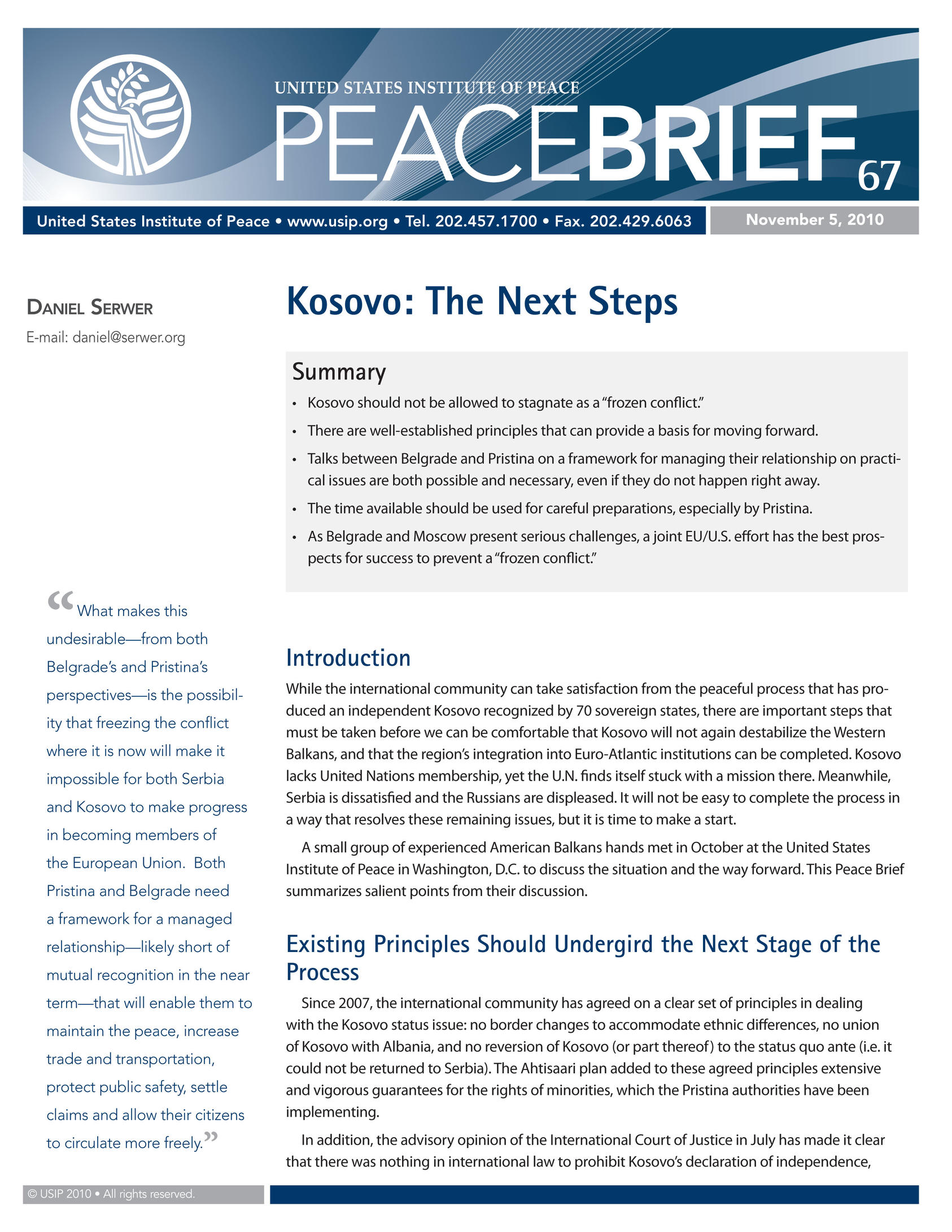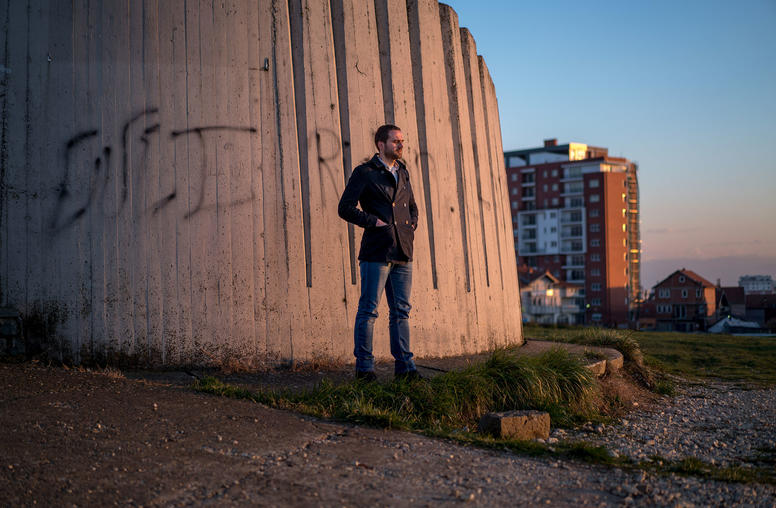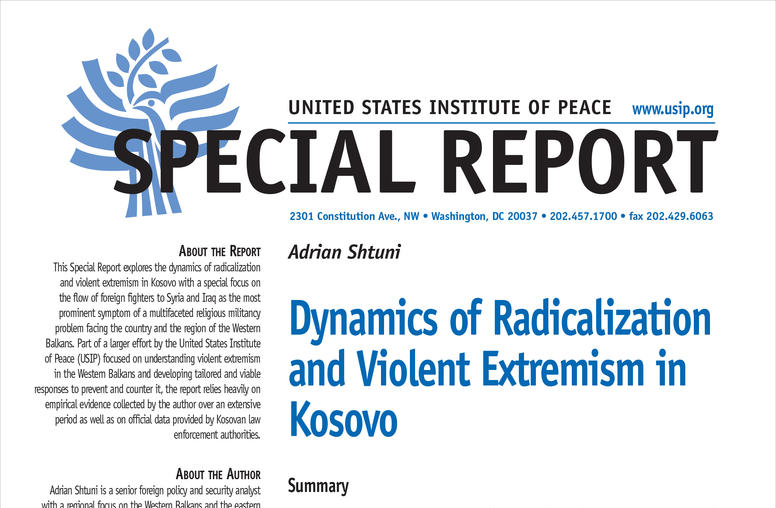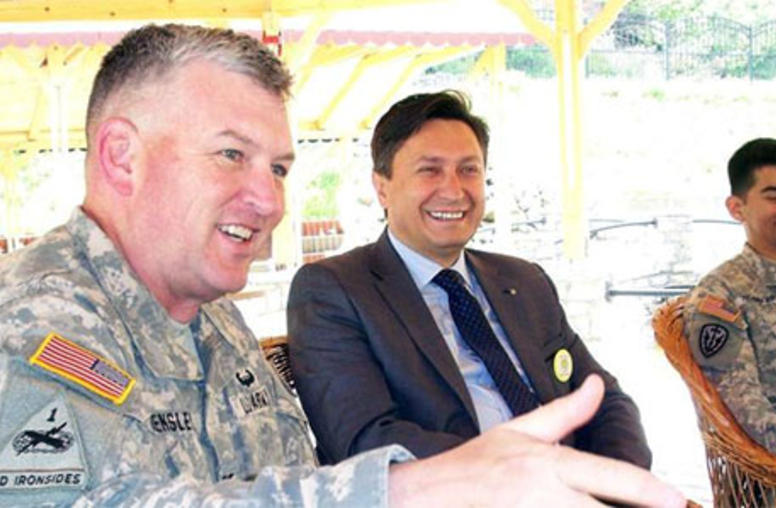Kosovo: The Next Steps
A small group of experienced American Balkans hands met in October at the United States Institute of Peace in Washington, D.C. to discuss the situation and the way forward. This Peace Brief summarizes salient points from their discussion.

Summary
- Kosovo should not be allowed to stagnate as a “frozen conflict.”
- There are well-established principles that can provide a basis for moving forward.
- Talks between Belgrade and Pristina on a framework for managing their relationship on practical issues are both possible and necessary, even if they do not happen right away.
- The time available should be used for careful preparations, especially by Pristina.
- As Belgrade and Moscow present serious challenges, a joint EU/U.S. effort has the best prospects for success to prevent a “frozen conflict.”
About this Brief
A small group of experienced American Balkans hands met in October at the United States Institute of Peace in Washington, D.C. to discuss the situation and the way forward. This Peace Brief summarizes salient points from their discussion.
Author Daniel Serwer, former vice president for the Centers of Innovation at the United States Institute of Peace, is now a professorial lecturer and visiting scholar at the School for Advanced International Studies at Johns Hopkins University. He can be reached at daniel@serwer.org.
Explore Further
- Learn more about USIP's work in Kosovo and the Balkans at www.usip.org/balkans.



